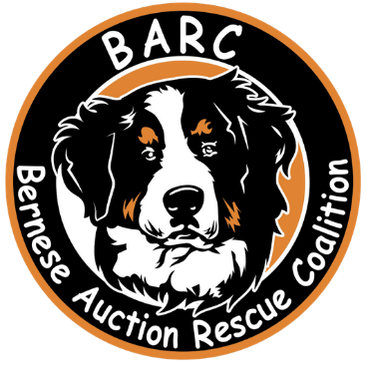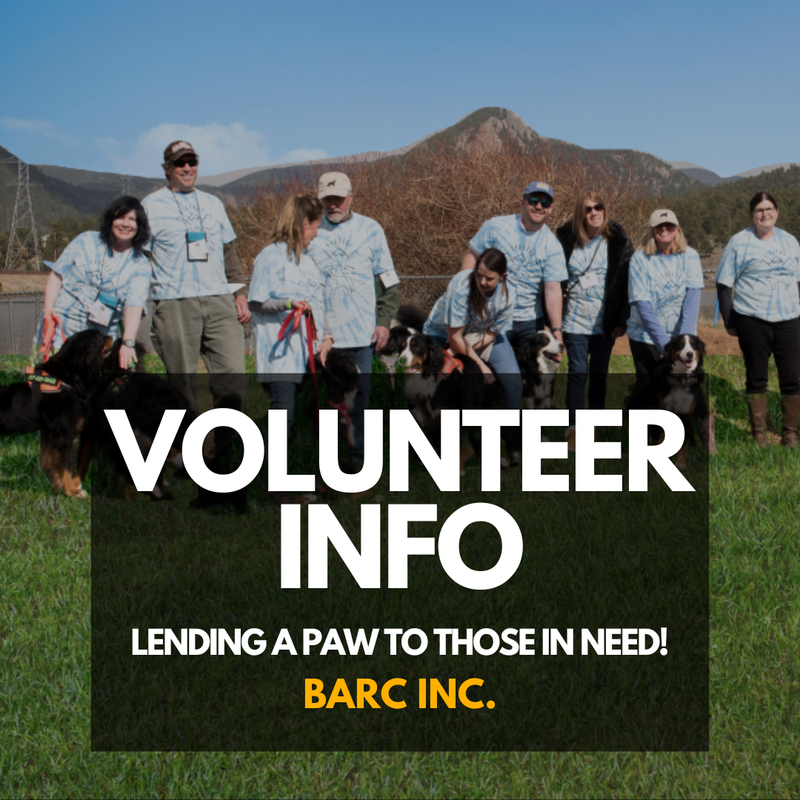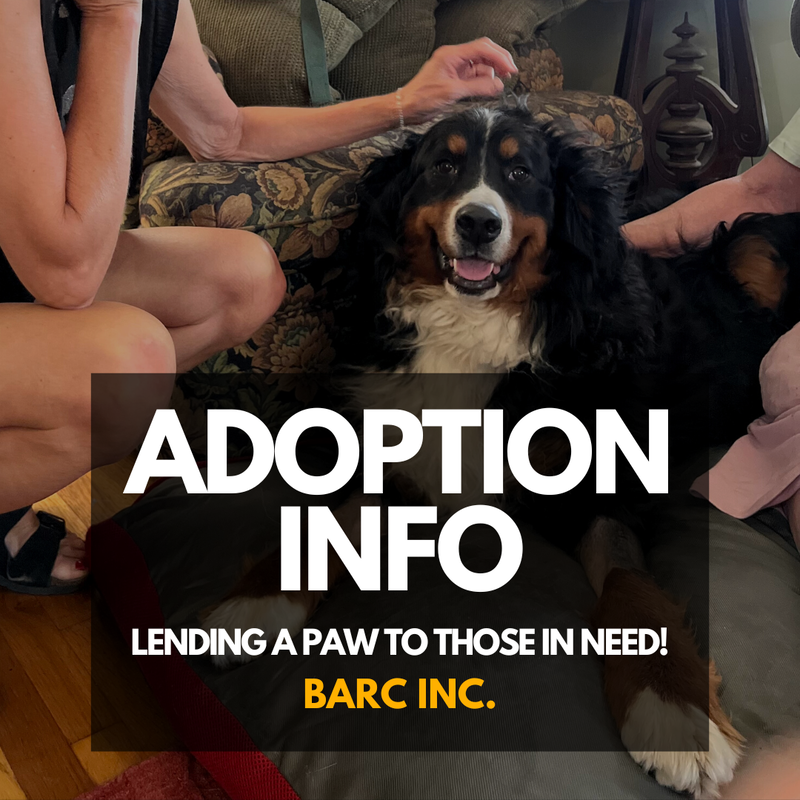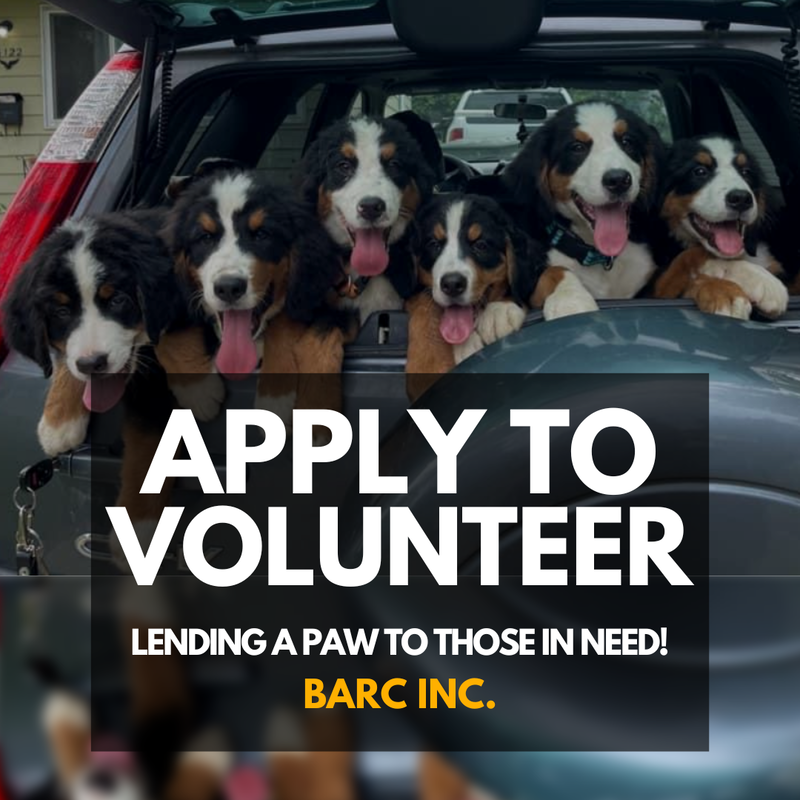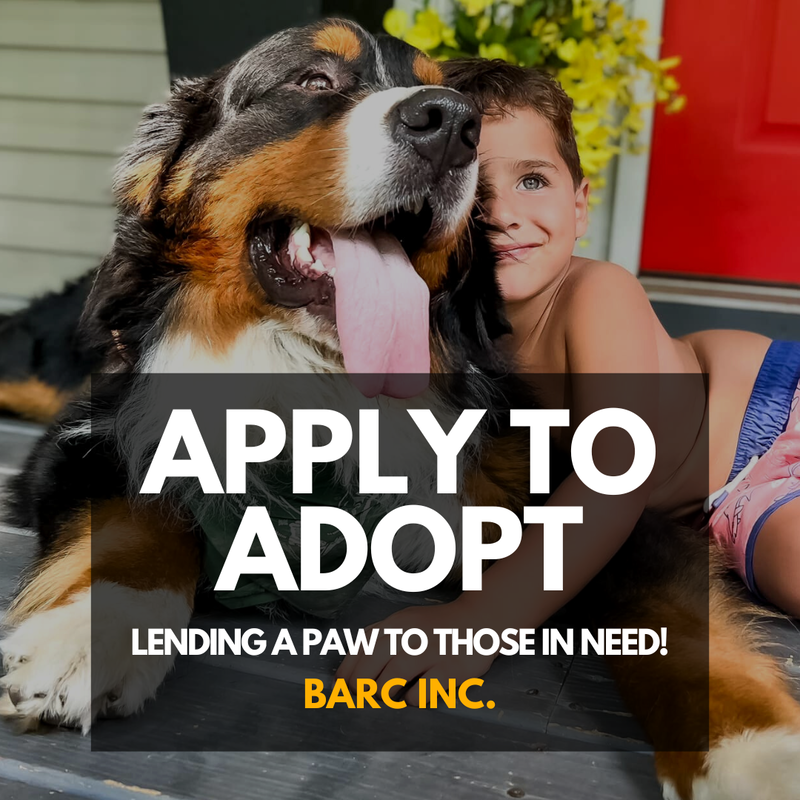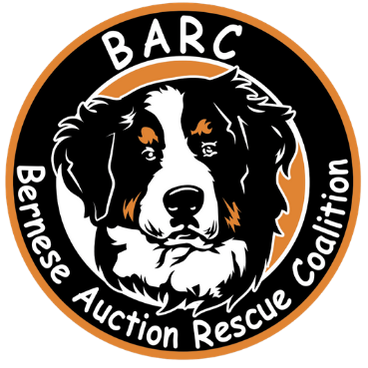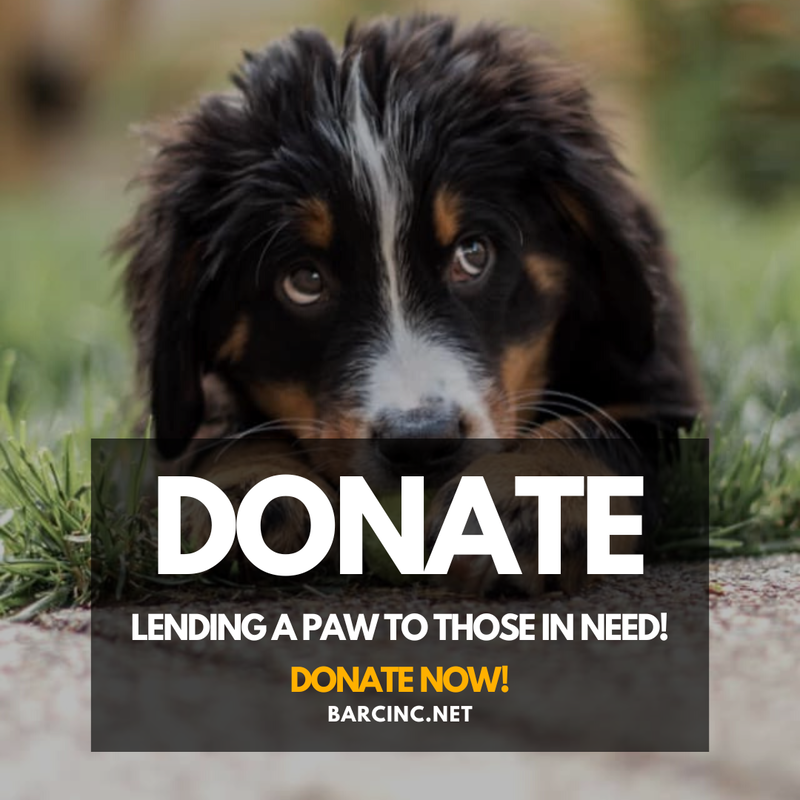Looking for the perfect Bernese Mountain Dog...?
Well, look no further! This Bernese Mountain Dog does not shed, does not bark, does not drool, is housebroken, does not need a fenced yard, does not need to be walked, does not need to be fed and watered, does not require expensive medical care, does not dig, needs no training and can be left alone for hours on end. Guaranteed. Ok, this is a joke... Some BARC dogs need a little work and some need a lot of work.
Although, our BARC dogs do come with Berner kisses, the Berner handshakes, the Berner smiles, those soulful Berner eyes, a big fuzzy foot warmer in the winter, and all of the love your heart can hold. Please remember, dogs are not perfect, just like humans. With each accomplishment & every milestone conquered, you & your rescue Berner will become closer & your bond deeper. That is a guarantee!
Although, our BARC dogs do come with Berner kisses, the Berner handshakes, the Berner smiles, those soulful Berner eyes, a big fuzzy foot warmer in the winter, and all of the love your heart can hold. Please remember, dogs are not perfect, just like humans. With each accomplishment & every milestone conquered, you & your rescue Berner will become closer & your bond deeper. That is a guarantee!
